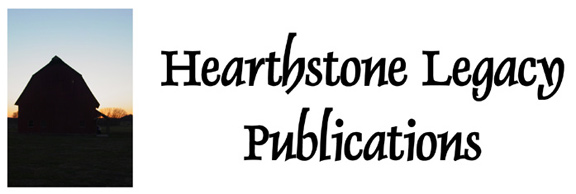|
Home
Up
Search
Multi-County DVDs
Missouri Counties
Southeast Missouri
Ozark Region
Arkansas Counties
Illinois Counties
Indiana Counties
Iowa Counties
Kansas Counties
Kentucky Counties
Louisiana Parishes
Massachusetts Vital Records
North Carolina Counties
Ohio Counties
Pennsylvania Counties
Tennessee Counties
Texas Counties
Historic Map Reprints
Plat Map Books
Census Records
State County Maps
New Titles
Coming Soon
Questions Answers
Customer Quotes
Wholesale
Conferences
Missouri Journey
Iris Median
Contact Us
Genealogy History News
Special Offers
County History Books
| |
Life in Pioneer Times
Many of the County History books published in the
1880's or 1890's feature a section concerning pioneer life. The following
excerpt is from The History of
Audrain County, Missouri published in 1884 by National
Historical Company, St. Louis, Missouri. Many of the other County History
books from this time period have the same or a very similar account of pioneer
life. The time being written about would be the 1820's to about 1840.
Here is the account as originally published in 1884:
No doubt we shall be led to regret
the absence among us of some of the virtues of those who lived in the early
days. Gone is that free-hearted hospitality which made of every settler's cabin
an inn , where the belated and weary traveler found entertainment without money
and without price. Gone is that community of sentiment which made neighbors
indeed neighbors; that era of kindly feeling which was marked by the almost
entire absence of litigation. Gone, too, some say, is that simple, strong,
upright, honest integrity, which was so marked a characteristic of the pioneer.
So rapid has been the improvement in machinery, and the progress in the arts and
their application to the needs of man, that a study of the manner in which
people lived and worked only fifty years ago, seems like the study of a remote
age.
It is important to remember that, while a majority of the
settlers were poor, poverty carried with it no crushing sense of degradation,
like that felt by the very poor of our age. They lived in a cabin, 'tis true,
but it was their own, and had been reared by their own hands. Their home, too,
while inconvenient and far from water-proof, was built in the prevailing style
of architecture, and compared favorably with the homes of their neighbors. They
were destitute of many of the conveniences of life, and of some things that are
now considered necessaries; but they patiently endured their lot and hopefully
looked forward to brighter days. They had plenty to wear as a protection against
the weather, and an abundance of wholesome food. They sat down to a rude table
to eat from tin or pewter dishes; but the meat thereon - the flesh of the deer
or bear, of the wild duck or turkey, of the quail or squirrel - was superior to
that we eat, and had been won by the skill of the settler or that of his
vigorous sons. The bread they ate was made from corn or wheat of their own
raising. They walked the green carpet of grand prairie or forest that surrounded
them, not with the air of a beggar, but with the elastic step of a
self-respected freeman.
The settler brought with him the keen ax, which was
indispensable, and the equally necessary rifle - the first his weapon of offense
against the forests that skirted the water courses, and near which he made his
home - the second that of defense from the attacks of his foe, the cunning child
of the forest and the prairie. His first labor was to fell trees and erect his
unpretentious cabin, which was rudely made of logs, and in the raising of which
he had the cheerful aid of his neighbors. It was usually from fourteen to
sixteen feet square, and never larger than twenty feet, and very frequently
built entirely without glass, nails, hinges or locks. The manner of building was
as follows : First, large logs were laid in position as sills; on these were
placed strong sleepers, and on the sleepers were laid the rough-hewed puncheons,
which were to serve as floors. The logs were then built up till the proper
height for the eaves was reached, then on the ends of the building were placed
poles, longer than the other end logs, which projected some eighteen or more
inches over the sides, and were called "butting-pole sleepers;" on the
projecting ends of these was placed the " butting pole," which served to give
the line to the first row of clap-boards. These were, as a matter of course,
split, and as the gables of the cabin were built up, were so laid on as to lap a
third of their length. They were often kept in place by the weight of a heavy
pole, which was laid across the roof parallel to the ridge pole. The house was
then chinked and daubed. A large fire-place was then built in at one end of the
house, in which fire was kindled for cooking purposes (for the settlers were
without stoves), and which furnished the needed warmth in winter. The ceiling
above was somewhat covered with the pelts of the raccoon, opossum and of the
wolf, and to add to the warmth of the dwelling. Sometimes the soft inner bark of
bass wood was used for the same purpose. The cabin was lighted by means of
greased paper windows. A log would be left out along one side, and sheets of
strong paper well greased with "coon" grease or bear oil would be carefully
tacked in.
Continued >
2
3
4
5
The Lives of Our Ancestors
Historic Map Reprints |
